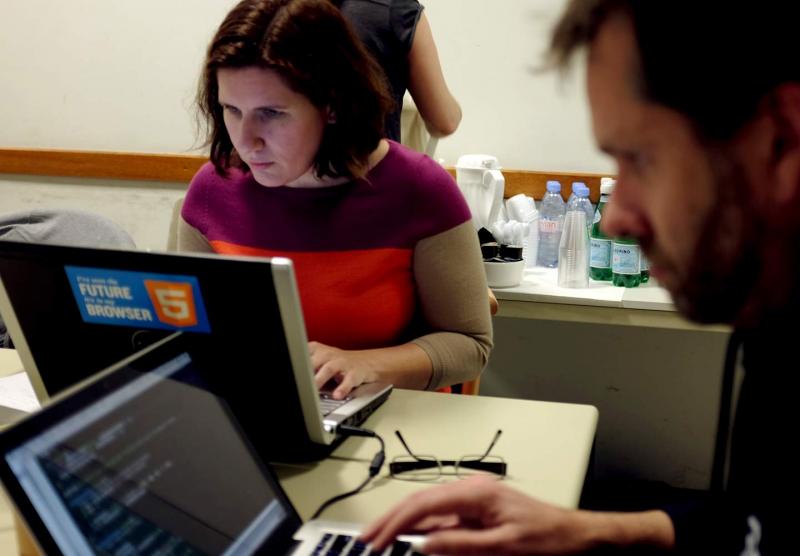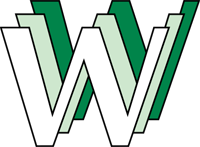An interview with Kimberly Blessing at the CERN line-mode browser hack days.

Name: Kimberly Blessing
Nationality: USA
Travelled from: Philadelphia
Profession: Director of Web Development for Think Brownstone
Why did you come to the CERN line-mode browser hack days?
I'm here to help create an interface that helps people understand what the early web browsing experience was like.
Why would you want to do that?
Twenty years ago, using and programming the web was a completely different experience from what it is today. Because I was using the web then, I remember what browsing with the line-mode browser was like. I remember writing code for it, and it looked a lot like the code we're digging through today.
These days, I spend a fair amount of time teaching students and coaching younger web developers – I love working with people who are fairly new to the web. It's important for aspiring web professionals to understand that experience and that history, in order to understand the web’s origins and how far we've gotten in a short period of time. I also think there's real value in understanding what mistakes were made in the past – features left unfinished or functionality not clearly defined – so that we don't repeat them in the future.
This project serves as a good reminder that there are people who still have a text-based browsing experience. There are so many mobile phones that still only get a text-only experience, because they're not smart phones. And, of course, what some assistive devices render is more akin to a text-based experience.
Let's go back to that early experience of the text-only browser environment. What was that like when you first started?
The first webpage that I ever made was really done with and for the Mosaic browser, while I was at my college’s computing lab. Back in my dorm room, all I had a dial-up connection to our Unix mail server. There I could only run Lynx, a text-only browser. Outside the computer lab, everything I did was text-only.
I grew very accustomed to the difference between the two browsers. It forced you to think about your content as being separate from the presentation – it reinforced the idea that the purpose of the web was communicating content. A few of us who are here for the hack days are still evangelizing the separation of presentation from content, it’s that important of a concept and it’s still often ignored.
What are you hoping to get out of the next two days?
I'm very interested in ensuring we can visually render a modern-day web page such that it looks as it would have in the old line-mode browser, to demonstrate that the basic instruction set of the web still functions today, and that we ensure it keeps on working. I’m also hoping to create a parser that will allow people to input a URL and get back code that looks like what they might have written 20 years ago: strip out everything modern-day and take it back to the bare bones. To say to developers, "No matter how beautiful you think your code is today, this is what it would have looked like 20 years ago," and hopefully pique their interest in understanding HTML’s origins, and the web’s origins.
Anything else you'd like to add?
I'm so honoured, and so excited, to be here. This is a complete dream! I have realized that not all web professionals know that CERN is the birthplace of the web, so I think we’re educating many people by being here. Personally, I know many people who applied to come to the hack days, and I realize they are living vicariously through me for the next couple of days, so I'm posting to social media as much as I can!
Also, I wouldn’t be here had it not been for the encouragement and support of a number of important people from my college days. I have to thank my friend, Sarah, for first showing me how to write HTML, and I have to thank the staff at Bryn Mawr College (including Elysa, Helen, John, Rodney, David, Jeb, Alisa, and Jennifer) for giving me a running start. But, most of all, I have to thank my college advisor and friend, Deepak Kumar, who helped me find my first “real” web development job, and reinforced that what I loved doing – creating web sites – could become a viable career, before most people even knew what the web was.
Dan Noyes on
